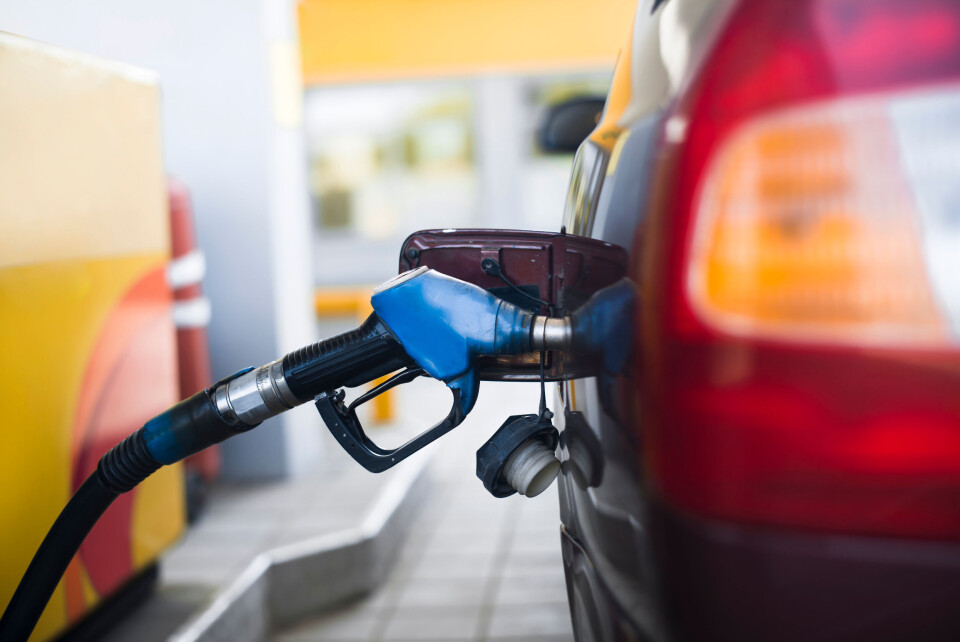-
More than 5,000 French communes use AI to identify poor rubbish sorting
Badly-sorted rubbish can cost millions so communes are turning to high-tech solutions
-
Tax on well-off retirees under consideration for 2026 budget
‘Nothing is off the table’ when it comes to finding €40 billion in savings says Labour Minister
-
Nice airport records passenger boom as tourists flock to city
Airport figures exceeded the pre-Covid record last year, with US visitors significant contributors
Diesel prices reach historic highs in France, averaging €1.53/litre
Current fuel prices are higher than the 2018 record that sparked the gilets jaunes protests

Diesel has reached its highest ever price in France, with average costs in petrol stations at €1.5354 per litre last week, according to figures from the Ministry for Ecological Transition.
The previous record was set in October 2018 and sparked the national gilets jaunes protests.
Prices for SP 95 petrol, which is used less than diesel in France, are also higher than normal at €1.6073 per litre on average, nearing the highest ever price of €1.6664 per litre set in 2012.
The new high means that diesel prices have risen 28% in the past year in France. See here for a list of average monthly diesel prices.
International market influencing French prices
This leap was exacerbated by the health crisis, which made prices artificially low at the start of the year.
Since then, prices have risen steadily, with the global price for barrels of crude oil reaching $82 last week – an increase of over 100% in 12 months.
These prices are impacted by international factors, such as China now using petrol to produce electricity, but they are felt directly by customers at petrol pumps in France.
As taxes on petrol and diesel have been frozen in France since 2018, price changes in petrol stations are almost exclusively down to fluctuations in global markets.
A study from la Banque de France said: “It takes on average 11 working days for 90% of the variation in costs to be transmitted to the overall price, and the total impact on the price of fuel takes around 20 working days [to come through].”
In the study, la Banque de France analysed 11,000 petrol stations between 2007-2018, and found that price increases and decreases were reflected in actual prices at the same speed.
Taxes help stabilise the costs a little, as they make up 60% of the total price paid by customers in France.
How will rising fuel prices impact French households?
Not surprisingly, price increases are likely to have a larger impact on poorer households in France.
A study from l’INSEE, l'Institut National de la Statistique et des Études Économiques, found that the top 10% of high-income households spent 3% of their income on fuel, while the lowest 10% of low-income households (that owned a vehicle) spent 10%.
Drivers can reduce their fuel use by lowering their driving speeds, using the most economical car if they have multiple vehicles, or by reducing the number of journeys they make.
However, price increases are unlikely to have a big impact on how much fuel people buy, experts suggest.
Raphaël Trotignon, economist at French research institute Rexecode told Les Echos: “An increase of 10% in the cost of fuel means a reduction of only 2 or 3% in consumption in rich countries in the short term.
“Households don’t really have any other choice than to accept the increase.”
Read more: See how your gas, electricity and petrol bills are rising in France
German drivers travel to France for fuel
As fuel prices around the world are being driven up, German drivers have recently found themselves in the unusual situation of it being cheaper to travel to France to fill their tanks.
Typically, fuel is cheaper in Germany as taxes are lower, but prices are currently around 20 centimes cheaper in France.
One French driver explained to LCI: “Normally fuel is cheaper in Germany. Once petrol even went down to €0.99 per litre.”
Another explained that she often travels the other way. She said: “Living in Strasbourg, we often buy cigarettes, alcohol, food and petrol in Germany.”
As well as global factors, price increases in Germany are down to a new ecological tax on carbon dioxide introduced in January, and high rates of inflation.
Related stories
Tips to find cheap petrol as prices in France reach pre-pandemic level
























